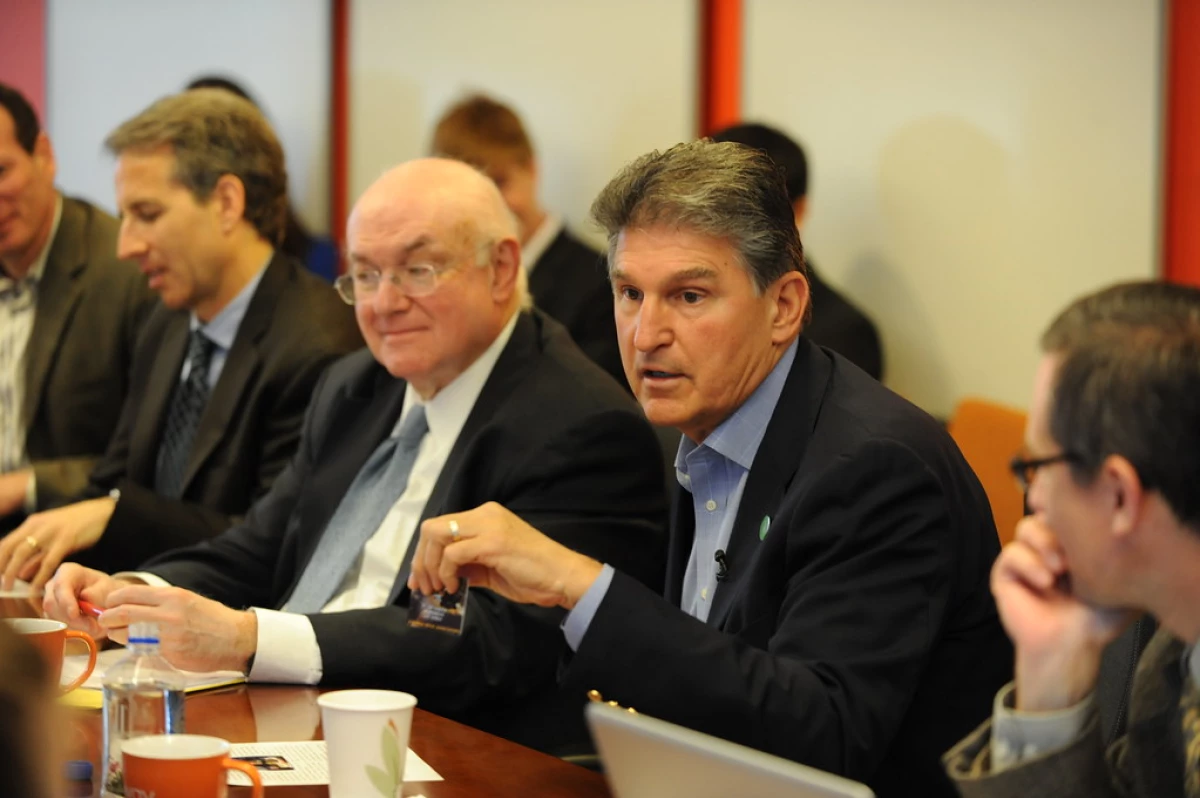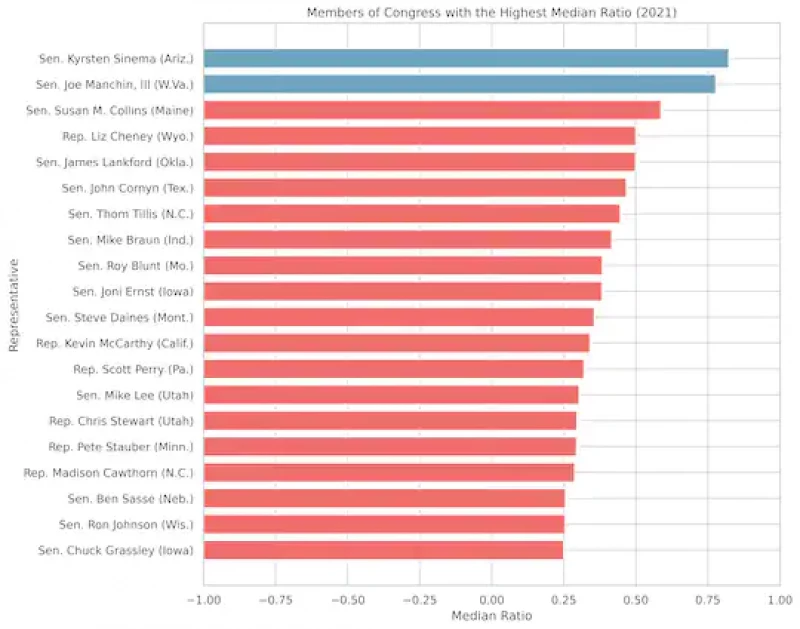- Home /
- Research /
- Reports & Analysis /
- Twitter Amplifies Conservative Politicians. Is it Because Users Mock Them?
Twitter Amplifies Conservative Politicians. Is it Because Users Mock Them?
Our research suggests conservative politicians are ‘ratioed’ more often, which may explain why they’re in your timeline.

Credit: Flickr
Authors
Area of Study
Tags
This article was originally published at The Washington Post.
Twitter reported last week that its timeline algorithm is more likely to amplify right-wing politicians than left-wing politicians.
The social media company prioritizes content (presenting it higher in the timeline) if it thinks that you are more likely to engage with that content, based on your past behavior or what other readers have been interested in. These algorithms remain highly controversial, because in some cases they can promote harmful information. According to documents leaked by whistleblower Frances Haugen and outside academic research, for example, Facebook’s algorithms appear to have led to increased outrage on the platform, incentivizing people to post controversial content (and then argue about it).
Why would Twitter’s algorithms promote conservative politicians? Our research suggests an unlikely but plausible reason: It’s because they get dunked on so much. Our data shows that conservative politicians in the United States are more likely than their peers to — in Twitter slang — be “ratioed.”
For people who don’t use Twitter, that term may require some explanation. When a tweet receives more quotes and replies than direct retweets — meaning users are commenting on the tweet rather than just bringing it to the attention of their followers — it often indicates that the tweet was unpopular, or a bad take that many Twitter users mock. (The “ratio” refers to the degree to which the direct retweets are outnumbered by commentary.) But Twitter’s algorithms may interpret the unpopularity of conservative politicians’ tweets as increased engagement, and therefore decide to amplify them.
Every day at New York University’s Center for Social Media and Politics, we collect a 10 percent random sample of Twitter. That amounts to tens of millions of daily tweets — including retweets. For our current research, we went into this sample to focus on retweets of members of Congress published since Jan. 1, 2021, calculating the number of quote tweets, replies and retweets.
This allowed us to calculate a “ratio” score for each tweet: We subtracted the number of retweets from the number of quote tweets and replies, and divided that figure by the total number of retweets, quote tweets and replies. (Trust us: This makes sense.)
Under this measure, the higher the score, the more the tweet has been ratioed by Twitter users, receiving more quotes and replies than retweets. A ratio score below zero means the tweet has received more retweets than quote tweets and replies. Scores above zero, on the other hand, indicate the tweet received more quote tweets than retweets — which, again, usually means a negative response in the Twittersphere.
Following this procedure allowed us to calculate the median ratio score per tweet for each member — and thereby to figure out who the most regularly ratioed members of Congress are in 2021. (If you want to understand how we arrived at this score, and how reliable our measures are, click here.)
Perhaps unsurprisingly, Democratic Sens. Kyrsten Sinema (Ariz.) and Joe Manchin III (W. Va.) have the highest median ratioed score per tweet in Congress as of 2021. This is almost certainly the result of their routine blocking of various Democratic measures proposed in the Senate. Notably, following Sinema and Manchin, the next 18 highest average ratioed members of Congress are Republicans, as the figure below shows.

In addition to analyzing individual members of Congress, we looked at how the ideology of members of Congress affected the distribution of ratios among them. We measured their ideology using a standard method used by social scientists (Nominate scores), based on their roll call voting records. What we found was that on average, the authors of tweets with higher ratios (i.e., tweets that cause more outrage online) are more conservative than the ideology of authors of tweets with lower ratios. We used straightforward statistical methods to test whether this relationship was significant, and we found that it was.
To be clear, our data doesn’t mean that being a conservative causes Twitter users to ratio members; nor does it definitively demonstrate that a high ratio is the signal that Twitter’s algorithm is picking up on to amplify the voices of conservative politicians. Still, our findings suggest conservative ideology is associated with increased likelihood of a tweet being ratioed.
In turn, that may help to explain why the platform amplifies conservative politicians’ voices — because if you train an algorithm to amplify tweets with which people are engaging, it may not care whether the engagement involves people celebrating and enjoying tweets and their authors, or hating on them. (Some users already intuit this, urging people on Twitter not to “give air to” offensive views by retweeting and criticizing them.)
This research may present information useful to lawmakers, who are figuring out how to address the problems of social media. It seems as if it should be possible for Twitter to change its algorithm so that it disfavors ratioed tweets, rather than amplifying them — if that is indeed what it is doing. Given that ratioed tweets are widely believed to generate division and outrage, such a shift could be a way to turn down the temperature on the social media platform.
If the conclusions we draw from our research are right, the politics of social media amplification may be more complicated than we think. Twitter users who ratio the content of politicians with whom they disagree may think they are mocking and diminishing them. In fact, they may be promoting them.
This article was a collaboration between PostEverything and the Monkey Cage. Don’t miss any of TMC’s analysis! Sign up for our newsletter.